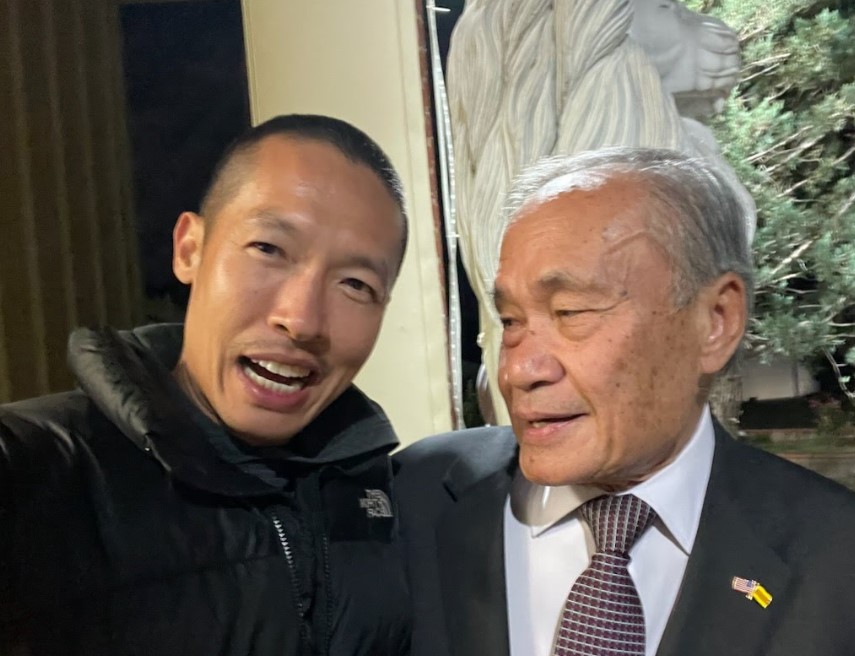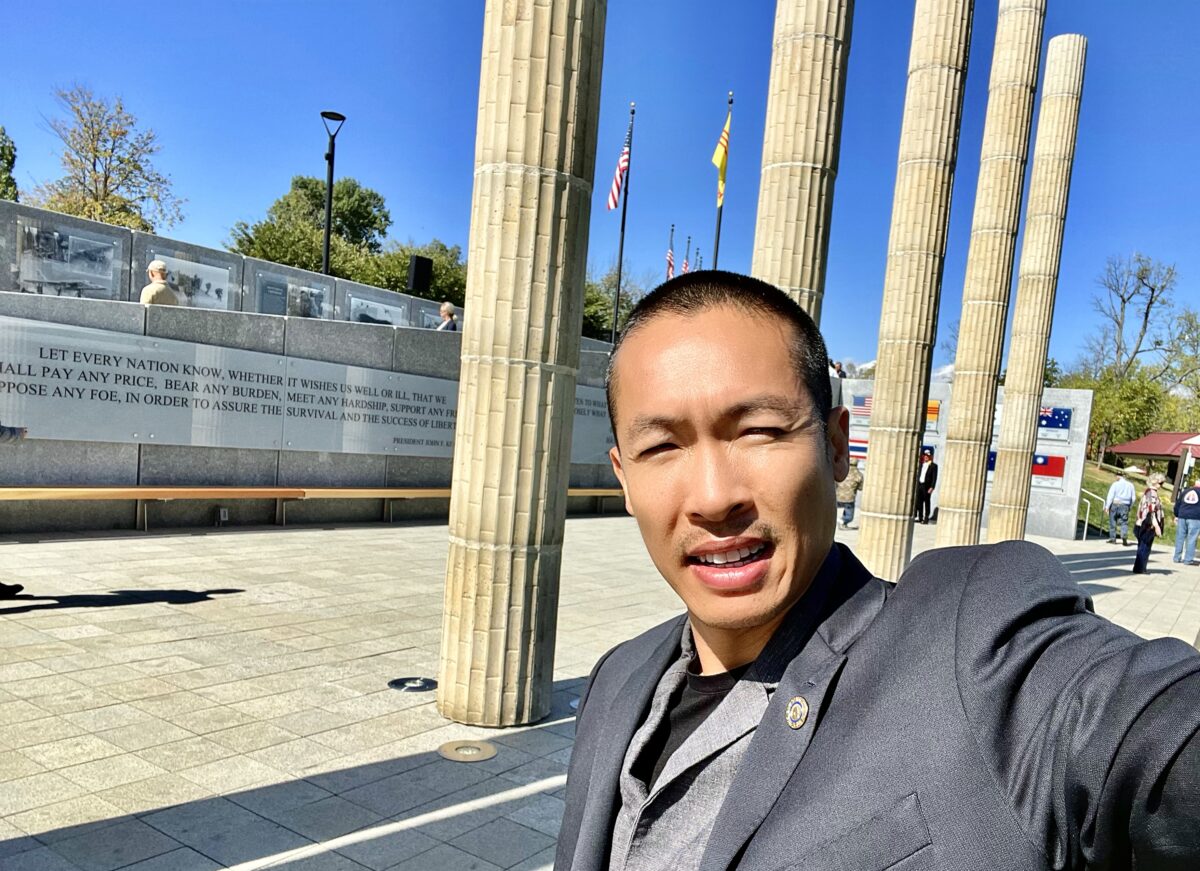On the serene grounds of Veterans Memorial Park, Jeffersontown, KY, stands the newly inaugurated Tri Ân Monument — a symbolic, steadfast marker, paying tribute to not only the undaunted veterans of the Vietnam War but also casting a light on the ceaseless vitality of the Vietnamese-American community. The tales of valor from both USA veterans and South Vietnamese allies have forever inscribed a saga of sacrifice and brotherhood, spanning continents and echoing through history.
In the harrowing aftermath of the Vietnam War, the narrative progressed, bringing forth another chapter: the exodus of Vietnamese refugees. Individuals like Di Tran, now a serial small business owner and author in Louisville, Kentucky, began a quest, fleeing the only home they knew, to seek refuge in a promising land across the vast ocean. The tales of Vietnamese refugees like Tran aren’t merely stories of survival but epitomize an indomitable spirit to create, to build, and to weave into the fabric of American society.
Yet, within these stories of past pain and triumphant survival, lies a pivotal narrative – one that evolves from the remnants of bygone struggles into a vibrant tapestry, defining not only where we come from but, significantly, where we stand now, and the direction in which we are headed. The Vietnamese immigrants and their ensuing generations, setting deep roots across the expansive United States, have come to symbolize a profound truth: The value of our shared humanity is engraved not in our past or our origins but in our daily deeds and our shared future.
Take, for instance, the burgeoning Nail Industry in the USA, a sector that has blossomed into a staggering $10 billion+ annual industry. The Vietnamese-American community has played a pivotal role in transforming this industry, demystifying the luxury of nail care from an exclusive privilege of Hollywood celebrities to an accessible indulgence for the common citizen. Through endeavors in such industries, the Vietnamese community has not merely constructed businesses; they’ve established vital connections, fostering a symbiotic growth that enriches both the individual and the society in which they’ve nested.
Moreover, a powerful testament to the allegiance and dedication of Vietnamese-Americans towards their adopted homeland is visibly apparent in the military. Thousands of individuals of Vietnamese origin, spanning 1.5, 2nd, and now 3rd generations, are serving with utmost pride and dedication in the USA military, embodying the virtues of loyalty, bravery, and unyielding commitment to safeguarding the land that has become home.
Monuments like Tri Ân stand not merely as remnants of a tumultuous past but as an eternal flame, illuminating the path of unity, resilience, and collective prosperity. This is not merely a symbol for Vietnamese-Americans but is a beacon for all, conveying a message that our shared histories, while sometimes scarred by wars and displacement, bind us together in a shared future that we are collaboratively creating.
The Vietnamese community, much like all immigrant communities, illustrates a quintessential American tale: one where our origins, fraught with their unique challenges and triumphs, contribute to a greater American narrative. We rise, not as disparate stories, but intertwine as a collective saga, continuing to weave a future that honors our past, celebrates our present, and lights a torch for the generations yet to come.
The Vietnamese in America stand proud, not merely as contributors but as invaluable chapters in the magnificent American story. It’s in every enterprise embarked upon, every military uniform adorned, and every future dream nurtured where we affirm our unwavering commitment: To build, to honor, and to perpetually contribute towards a future where every story is cherished, every sacrifice acknowledged, and every contribution fuels our shared American dream.

With Di Tran, this is Hoàng Đức Nhã was a notable figure in South Vietnam during the era of the Vietnam War, holding a significant position as an advisor to President Nguyễn Văn Thiệu. President Thiệu was the head of state in South Vietnam from 1965 to 1975, and Hoàng Đức Nhã was known to be one of his closest and most influential advisors.
Nhã held numerous roles during Thiệu’s presidency, including being involved in the realm of media relations and psychological warfare. He is often associated with managing and controlling the media and information dissemination in South Vietnam during the Thiệu administration, crafting the government’s narrative and managing its image during a particularly tumultuous and polarizing period in Vietnam’s history.
As an advisor to President Thiệu, Nhã was involved in various aspects of governance and policy-making and was often seen as a controversial figure due to his influence and the various strategies implemented, especially regarding media censorship and control.
It’s noteworthy that the history and the characters from the Vietnam War era are complex and multi-faceted, with diverse narratives stemming from the different perspectives and sides of the conflict. While some see figures like Nhã and Thiệu in a particular light due to their actions and policies during the war, others may have contrasting views based on their experiences, loyalties, and interpretations of the historical events.
References
https://openvault.wgbh.org/catalog/V_9C17ECD0FF9B45D7BDE1A4730F2E0988



